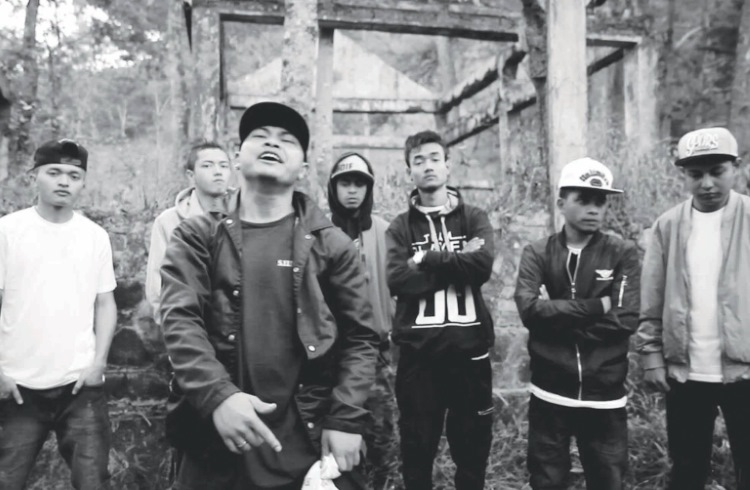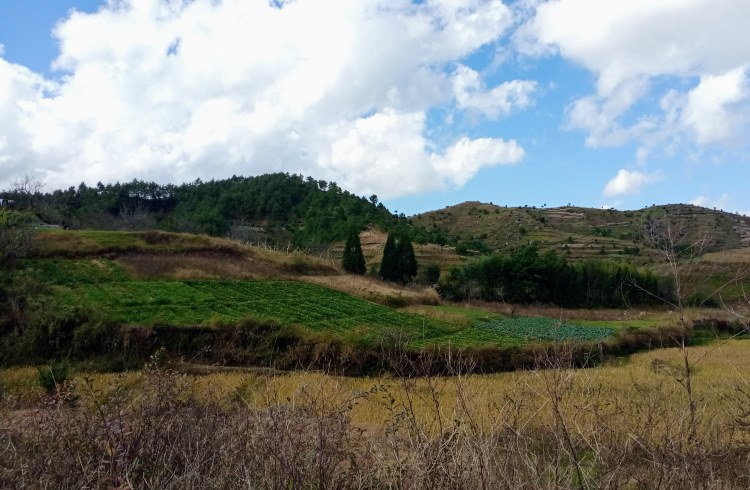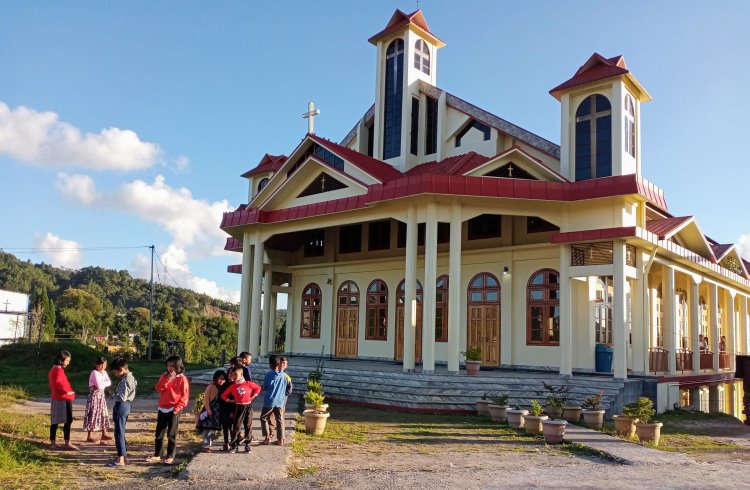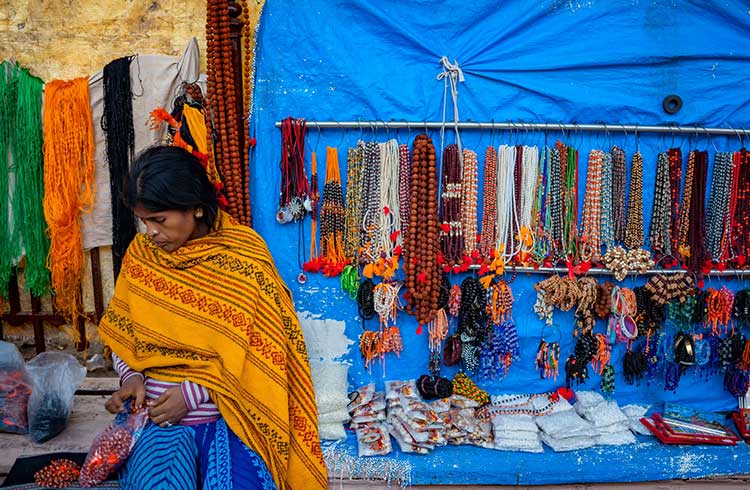Shillong Rocks: Northeast India’s Unique Music Scene
In a part of northeast India, known as the “Scotland of the East” for its rolling green hills, the indigenous Khasi people favor Western rock and roll over Bollywood, and their youth are YouTube stars in the making. John McMahon shares his experience.
 Photo © Shillong Underground Cypher
Photo © Shillong Underground Cypher
Shillong is the capital of Meghalaya state in northeast India, known as the “Scotland of the East” for its cool temperatures, high, grassy hills, and evergreen forests. Once a popular spot for colonialists to get away from the heat of Kolkata, today the area is visited mostly by Indian holidaymakers seeking clean air, hikes in the rugged nature, and waterfalls that have put it on the map for adventure fiends. The indigenous Khasi people retain their own language and customs and see themselves as separate from the rest of the country – a stance that's reflected in the local food, clothing, religion, and a love for Western-style rock and roll.
My trip to Shillong was a snap decision when a planned trip to the remote border between China, Bhutan, and India (known as the McMahon Line) was stymied by a cyclone.
I had read briefly about Shillong but didn’t think I was going to have time to visit. Suddenly, I had five days with nothing else to do so took a train to a bus to a private taxi to get there – more than 10 hours of climbing the winding roads into the green hills. I had booked a sort of cabin in the hills about 6mi (10km) from Shillong city.
Searching for Shillong’s rock and roll scene
In Bollywood-obsessed India, a love for Western rock and roll is an oddity. The Khasi love of rock is written up in every article I’ve read about the place, and this made me curious. Their reputation as rockers goes back to the 1950s. Indian Ocean, a world-recognized jazz-folk-rock fusion band, is from Shillong, and in the recent past this obscure, hard-to-reach place has hosted bands such as The Scorpions and Michael Learns to Rock.
On my second day, I hiked to a nearby man-made lake before breakfast. It was Saturday and there was a little crowd of people picnicking and doing laundry at the lakeside. A path wound around the lake and I followed it as it disappeared back into the hills and forests. The air was cool among the evergreen trees and from higher up I looked out onto rolling hills of grass where goats and cattle grazed. I could see why this place is compared with Scotland.

Just as I thought I might be lost, a set of handmade steps led me up a steep hill to a garden where an old man was tending to his vegetables. If he was surprised to see me, he didn’t let on. His house and those of the surrounding village were the remaining holiday houses from the original hill station, looking like little English cottages with tin roofs punctuating the remote landscape.
In the village, I asked everyone about rock bands. At a small cafe, a group of kids air-guitared and drummed on the table over noodles and momos, rattling off names of bands, but didn’t have the English to tell me where I could see them perform live.
On day three, I hiked to Elephant Falls, a multi-tiered waterfall surrounded by fern forest where the water was icy cold and seemed clean enough to drink. Instead of walking back to my accommodation I waved down one of the small, shared taxis and jammed myself into the front seat next to the driver. John was a recent graduate who had a plan to drive the taxi for three years and then branch out into doing private tours. I asked him about the local connection to rock and roll. He ran off a list of bands from Shillong as long as his arm, repeating a few that I had already heard such as Lou Majaw, a Bob Dylan-like figure in the local scene. But why? John figured it was something to do with Shillong’s long history of being a colonial seat and its connection to Western culture. It was then that I made the connection to the church.
A mix of church and online culture
The majority of Khasi people follow one branch of Christianity or another and in their churches, they sing the same hymns and learn the same rhythms as their brother and sister Episcopalians or Baptists in the UK or the US. I witnessed this the next morning when I stood discreetly just outside the doors of Mylliem Presbyterian Church and listened to the townsfolk sing throughout the meeting, dressed in their Sunday best.

Most of the clubs in Shillong John had recommended to me were booked for private parties and one was closed. I wandered the streets searching for buskers who I had read would be out around the city's central park.
Somewhere in the crowd I heard something – not singing, more like rapping – and I followed the beat to a group of young guys, late teens-early twenties, dressed in menacing urban streetwear, battle rapping. They rapped in Khasi and English about growing up in Shillong and the surrounding villages of Megahylan state where poverty rates are among the highest in the country and employment rates are near the lowest. They didn’t perform in clubs, said Shawn, the oldest and most recognized of the rappers. They filmed each other for TikTok and YouTube where some of their videos get hundreds of thousands of views.
This group of aspiring hip-hop artists listed the names of local rappers: Karmtak, J Donz, Big King, MC Gorka. They are YouTubers, but also stars on the streets of Shillong and perform at festivals all over the country in Khasi and English.
It made sense. These kids were brought up in the church, but they are also the social media generation, and no matter where in this wide world one goes, everybody is using a smartphone, even if it’s being charged off a solar panel in a village with no other electric source. They were brought up on hip-hop and rap, beamed across the globe and made by people they could relate to: the underdogs, the poor, the ignored. And some had made it big just as these kids were dreaming of doing.
Trip notes
I arrived in Meghalaya via private taxi but left from nearby Shillong airport. Though only 18.5 mi (30km) from downtown Shillong the trip takes 1.5 hours. This kind of slow travel is the norm across Meghalaya State due to road conditions and chaotic traffic, which makes it a bit difficult to get around and see the famous sites. Scooters are available for rent in Shillong but as a seasoned motorcycle rider, I would say this is not the place to learn or even perfect your riding skills. Most tourists book private guides from Guwahati, the capital of Assam state, which will have you riding around in the comfort of a large 4x4. Meghalaya and Shillong don’t get a lot of foreign travelers, so it takes some patience and adaptability to get there and enjoy yourself. And of course, don’t drink the water.
Related articles
Simple and flexible travel insurance
You can buy at home or while traveling, and claim online from anywhere in the world. With 150+ adventure activities covered and 24/7 emergency assistance.
Get a quote


No Comments